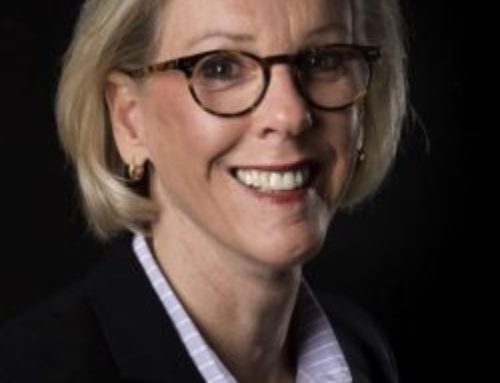At Florida State, head football coach Bobby Bowden has done it all, but he isn’t finished yet.
By JOEY JOHNSTON
Tribune Staff Writer
(c) Tampa Bay Times. Originally published Nov. 29, 2008.
TALLAHASSEE – Each day, as he enters the Moore Athletic Center, Bobby Bowden walks past a bronze statue created in his likeness. Fittingly, it is larger than life. But it wasn’t built to scale, at least not when you consider Bowden’s impact.
Perhaps it should tower over Doak Campbell Stadium. Maybe it should dwarf the entire campus of Florida State University.
“He’s a football coach, but there’s no greater ambassador or recognizable figure at this institution,” FSU President T.K. Wetherell said.
Bowden, 79, said he doesn’t feel like a legend. He is more interested in guiding the Seminoles (8-3) back to college football’s rarefied air. If FSU can get the victory today against the No. 2-ranked and 161/2-point favorite Florida Gators (10-1), it would be Bowden’s biggest win in a decade.
“I don’t sit around saying, ‘Well, I got me a statue. I got a field named after me.’ When you start thinking like that, it’s over, baby,” he said.
Bowden doesn’t want it to be over – not yet – although the clock is ticking. He is working on a one-year contract, which automatically renews when he gives the word, or stops when he decides it’s time to quit. Offensive coordinator Jimbo Fisher is the head coach-in-waiting.
And waiting.
And waiting.
“There will never be another like him,” Fisher said.
Savoring Each Day
Bowden is the guy who took a chance when FSU football had, at best, modest facilities, a thin budget and a laughingstock reputation.
He’s the maverick who played anybody, anywhere, making it cool to be a Nole, building FSU to national prominence, then college football history, with an obscene 14 consecutive teams that finished ranked in the top five.
He’s the man who still loves the recruiting chase, a mortal-lock closer once he gets to that kitchen table, spinning his homespun tales, getting everybody nodding and laughing. “Mamas don’t want to hear about football,” he said. “Mamas want to hear that you’ll take care of their boy.”
He’s the coach already in the College Football Hall of Fame, 19 victories short of 400 for his career, the recipient of every honor imaginable.
He’s all of that.
“Know who I really am?” Bowden said. “I’m still that boy who was sick.”
At age 13 in Birmingham, Ala., Bowden was diagnosed with rheumatic fever. Six months in the hospital, then more than a year confined to his bed. The doctor came by every day to check his blood – Bowden still winces thinking about the needle – and he wasn’t optimistic.
No walking up steps, no physical exertion, and certainly no football. The doctor told Bowden’s mother there was a chance her child wouldn’t live past 40.
“Can you imagine?” Bowden said softly. “Sometimes, I think about that. Being gone at 40.
“Well, now I’m 79. Get me through another year, then I want a word with that doctor. I’ve doubled him up.”
The health scare taught Bowden to value each day – and to make use of his talents. Get me through this, Bowden remembers praying, let me play football and I’ll dedicate myself to the good and give back to everyone.
FSU has been the beneficiary.
When Bowden was hired by FSU in 1976, he began a series of off-season booster meetings – golf in the morning, a banquet at night – to drum up support and contributions for the cash-strapped program.
“The first few, man, you should’ve seen those,” Bowden said. “Seven people in Tampa, maybe 10 in Orlando, you’d scare up a few in Miami. But we kept at it.”
When the Seminoles became successful, the booster events sold out – and now they are mainstays, a way for FSU fans to get up close and personal with the coach.
“He’s remarkable in those settings,” said former FSU receiver Barry Smith, one of the program’s biggest supporters.
Getting The Message Out
Even the most ardent Gators agree.
When linebacker Scot Brantley came out of Ocala Forest High in 1976, he chose Florida over Alabama. FSU wasn’t even a consideration.
“They weren’t on anybody’s radar,” said Brantley, the former Buc who co-hosts a sports-talk radio show in Tampa. “How far they’ve come, to me, is a testament to one man. I think they should name the place Bobby Bowden University.”
In Bowden’s first year, he said FSU needed to attract students. Bernard Sliger, the school president then, often asked Bowden to call on promising students in towns where he recruited top football players.
A few years later, when the Seminoles were 11-0 and playing in the Orange Bowl, Sliger told Bowden there were 2,500 available spots for freshmen – and more than 5,000 applicants, some from California, Colorado and Michigan.
“He said football was getting our message out, and I was almost amazed,” Bowden said. “I never expected that kind of platform.”
After winning his initial national championship in 1993, Bowden reached another first. He recruited a player who wasn’t even born when he took the FSU job. Over time, his teams have included sons of former players, such as the current quarterback, Christian Ponder, whose father, David, played for Bowden in the early 1980s.
Of course, all the news hasn’t been positive. FSU football was embroiled in a cheating scandal last year that could result in NCAA probation. Two weeks ago, five players were suspended for their role in a campus brawl. Two of them were charged and arrested.
“The first sign of trouble, people are like, ‘Get a younger man in there. Bowden’s out of touch.'” Bowden said. “Does it make me angry? No. It’s human nature.
“I guess I want to prove them wrong. I’m like that old fighter. I want to win another belt. If you want to look back, get in that rocking chair. You stay young by looking ahead.”
Bowden’s status is secure. The statue, standing guard each day, is a reminder. But the thing is, Bowden never stops to admire it. Since its dedication, he can’t remember even looking at it much.
He’s too busy – looking ahead.





